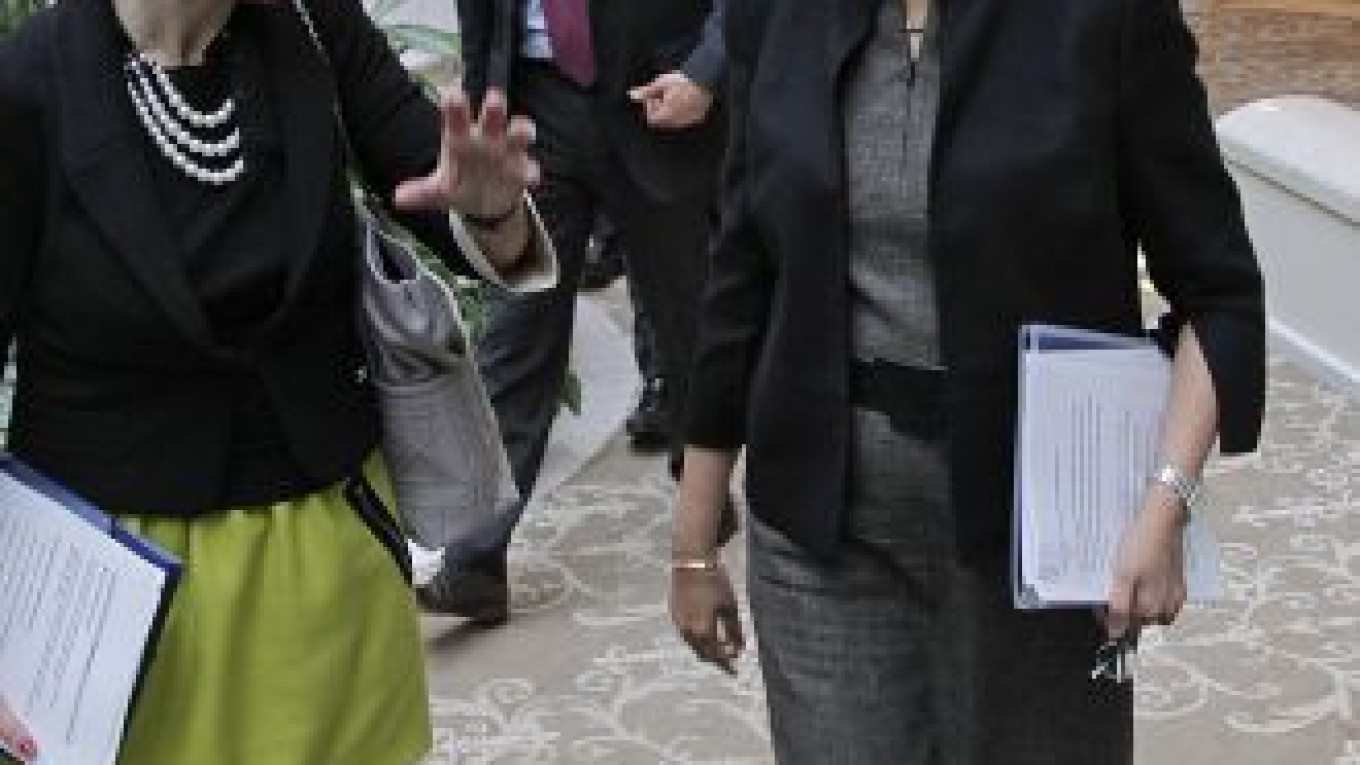As Indra Nooyi, chairman and CEO of PepsiCo, ate breakfast on Monday morning, she puzzled over an item in front of her: a bottle of Chudo yogurt.
“I looked at this and thought, ‘Is it a beverage or a snack?’” Nooyi said.
The answer, she decided, was both.
The yogurt, which is sold plain or mixed with ingredients like berries, fruit and muesli, blurs the line between the categories of ?€?beverage?€? and ?€?snack?€? and represents a Russian concept that PepsiCo might market abroad.
?€?Russia has massive potential for exporting R&D expertise in nutrition and snackifying drinks and drinkifying snacks,?€? Nooyi told a small group of journalists Monday afternoon in a conference room at the Marriott Royal Aurora hotel, where she was staying.
PepsiCo has a vested interest in Russia?€™s export potential. Russia is the company?€™s largest market outside of the United States and the only market in the world where it provides consumers with products from birth throughout the rest of their lives. With more than 40 plants across the former Soviet Union, the company is Russia?€™s No. 1 industrial processor of both potatoes and milk, Nooyi said.
?€?Russia has a great potential to export products abroad,?€? she said.
Contenders for export include four local brands that generate more than $500 million in annual sales each in Russia and that PepsiCo expects to grow into billion-dollar brands. ?€?We expect our next billion-dollar global brands to come from Russia,?€? Nooyi said.
The four brands are Chudo yogurt, Fruktovy Sad fruit juice, Domik v Derevne dairy products and Agusha baby food, said Alexander Kostikov, communications director for PepsiCo Russia.
Kostikov said, however, that Nooyi was not suggesting that Chudo and the other brands might be sold globally but that they would become billion-dollar brands in PepsiCo?€™s global portfolio.
PepsiCo also plans to expand in Russia with the launch of its Quaker Oats products next month or in December, he said.
PepsiCo owns 10 of Russia?€™s top 20 food and beverage brands after acquiring Wimm-Bill-Dann, Russia?€™s biggest juice and dairy producer, for $3.8 billion in December and the Lebedyansky juice and baby-food company for $1.4 billion in 2008. PepsiCo has invested $9 billion in Russia over the past decade and is currently investing $1 billion in sales, systems and organization, Nooyi said. Revenues topped $5 billion in 2010.
Nooyi, in town for a meeting with Prime Minister Vladimir Putin and other foreign investors Monday, accented PepsiCo?€™s commitment to Russia, noting that Pepsi co-founder Don Kendall brought the beverage to the Soviet Union in 1959 and the first plant opened in Novorossiisk in 1974. Nooyi said the first Pepsi commercial aired on Soviet television in 1988 —? ?€?something unheard of in a country that had no advertisements of any kind.?€??
?€?Long before any other multinational, we have realized the potential of the Russian market and have always stayed at the forefront of change in Russia,?€? she said.
?€?Today we can honestly say that over the 50 years of doing business here we have become a truly Russkaya kompaniya with a global flavor.?€?
But Nooyi said she likes a local flavor ?€” Chudo, even if? it escapes strict classification as a beverage or a snack.?
What?€™s her favorite flavor? A blend of apple and muesli, said Ramon Laguarta, president of PepsiCo for Eastern Europe.
A Message from The Moscow Times:
Dear readers,
We are facing unprecedented challenges. Russia's Prosecutor General's Office has designated The Moscow Times as an "undesirable" organization, criminalizing our work and putting our staff at risk of prosecution. This follows our earlier unjust labeling as a "foreign agent."
These actions are direct attempts to silence independent journalism in Russia. The authorities claim our work "discredits the decisions of the Russian leadership." We see things differently: we strive to provide accurate, unbiased reporting on Russia.
We, the journalists of The Moscow Times, refuse to be silenced. But to continue our work, we need your help.
Your support, no matter how small, makes a world of difference. If you can, please support us monthly starting from just $2. It's quick to set up, and every contribution makes a significant impact.
By supporting The Moscow Times, you're defending open, independent journalism in the face of repression. Thank you for standing with us.
Remind me later.


